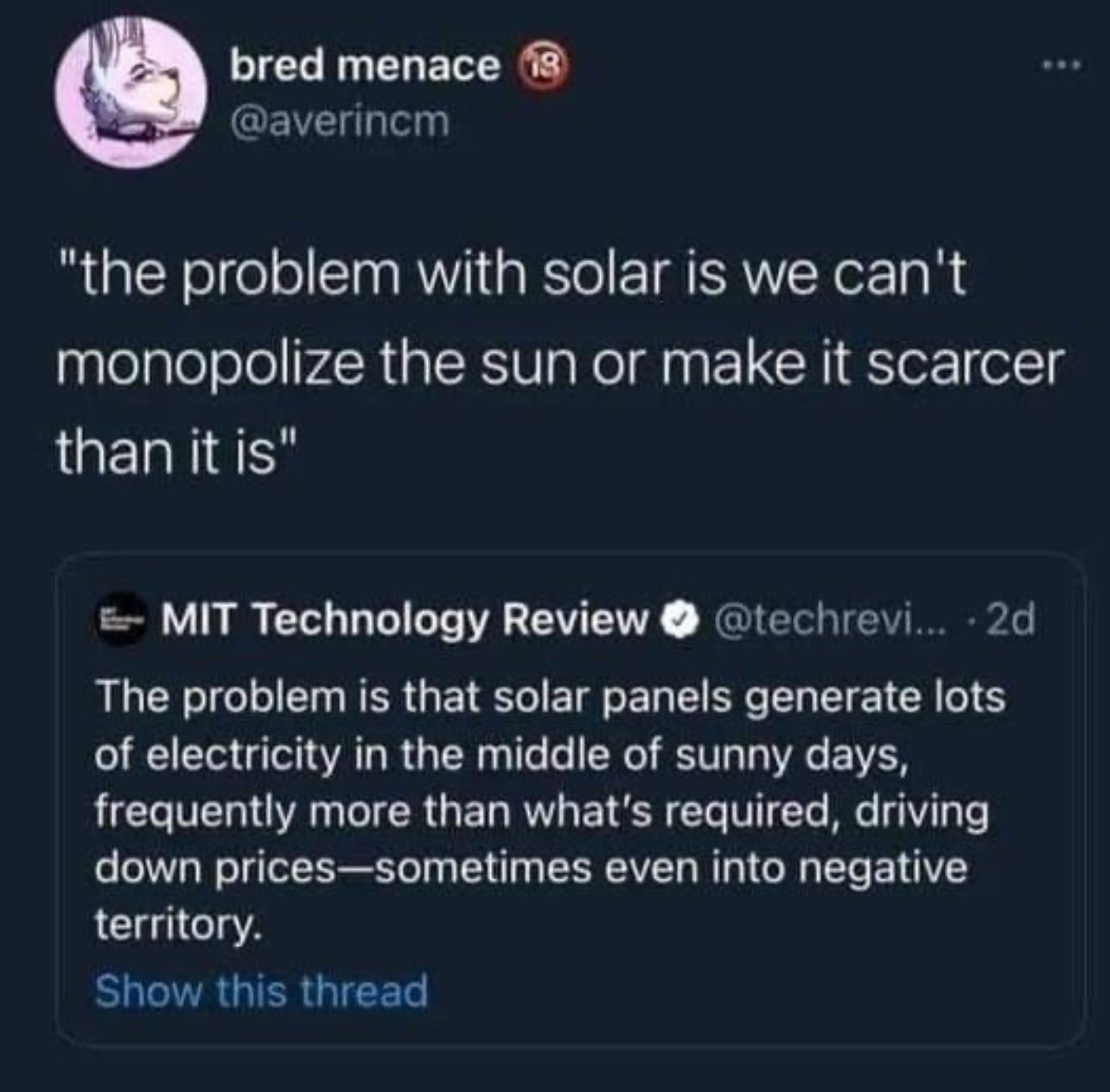this post was submitted on 02 Oct 2024
1700 points (95.6% liked)
Microblog Memes
8151 readers
3365 users here now
A place to share screenshots of Microblog posts, whether from Mastodon, tumblr, ~~Twitter~~ X, KBin, Threads or elsewhere.
Created as an evolution of White People Twitter and other tweet-capture subreddits.
Rules:
- Please put at least one word relevant to the post in the post title.
- Be nice.
- No advertising, brand promotion or guerilla marketing.
- Posters are encouraged to link to the toot or tweet etc in the description of posts.
Related communities:
founded 2 years ago
MODERATORS
you are viewing a single comment's thread
view the rest of the comments
view the rest of the comments

Resource inefficiency is inconsequential as long as it generates profit within a capitalistic system.
If you're going to create infrastructure to use the extra power, you may as well do useful work with it.
Aluminium smelting is about the most energy intensive thing we do, so better electricity management around that would be far more useful to far more people than creating digital assets for board members to get excited about. Just as an example.
Realistically the easiest way to use cheap/free electricity is to charge electric cars with it. Then we have energy storage and offset power usage later on when electricity is more expensive. There are plenty of ways to continue to make money off that process even if the electricity itself costs very little.
P1: I agree. P2: The issue of negative electricity prices is not just one of demand; It is also one of lacking power delivery infrastructure. So you can use the extra power remotely, as long as we also upgrade the power transmission infrastructure. However; I don't agree with the statement that it is the easiest solution. Using the energy locally is easier. It would be nice though.
I meant easier in terms of infrastructure already existing. Things like vehicle-to-grid, and Tesla Powerwalls are already on the market, so with the right incentives the power storage in the grid can scale with the speed renewables are scaling up.
It won't be exactly inline, which is why windfarms are built with the ability to switch off if the grid rejects the power they're creating, but it's a start.
I agree with you about the failures in power delivery infrastructure. The UK is very slow to connect up new wind and solar farms because the grid cannot scale up fast enough. New wind farms sit idle for months before they're connected to the grid, which is pretty crappy. Needs more focus and investment, maybe even marketplace competition to get things going, if we're looking for capitalist solutions to things.
I doubt aluminum smelting makes sense as an intermittent thing.
This is where people keep coming back to hydrogen. While hydrogen doesn’t make sense for vehicles, or long term storage, it might for time shifting of intense energy uses locally
Solar—>hydrogen—>aluminum smelting?
Right, this is essentially another form of battery. Maybe it'll work out. It doesn't require flooding an entire river valley somewhere, so that's nice.
Yes, we need to stop thinking "battery" and broaden to energy storage as a whole, which can take many more forms (wind up a big coil! Push things uphill!).